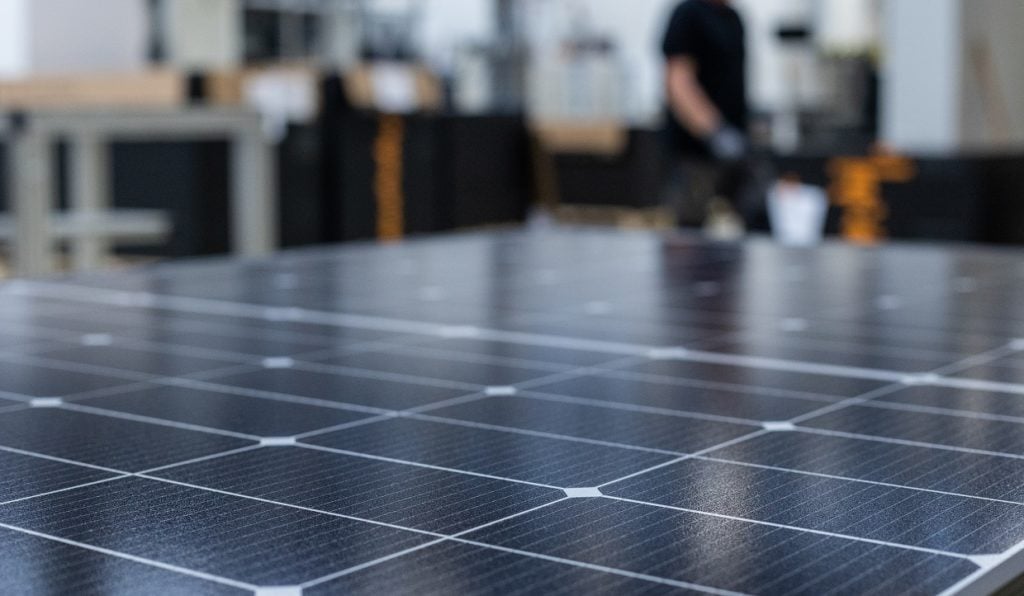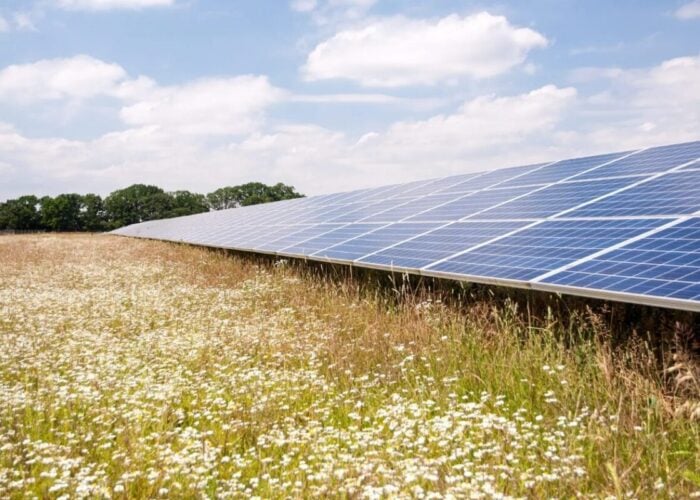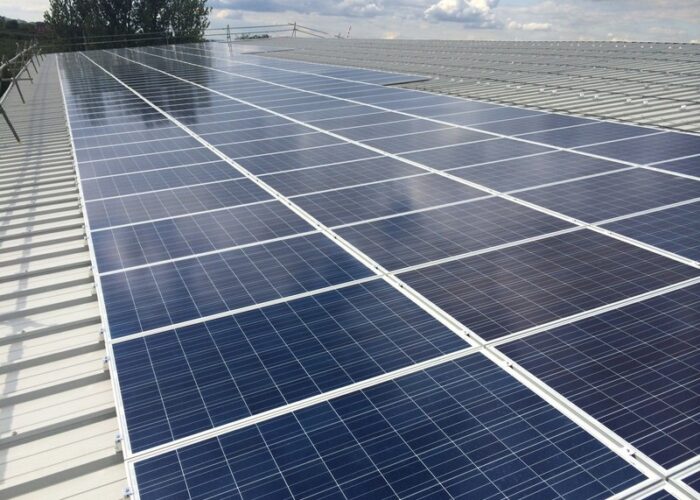
Germany’s Federal Ministry of Economics and Climate Protection (BMWK) has launched a request for expressions of interest (EoI) to boost the country’s solar PV manufacturing supply chain.
The target is to build up 10GW of solar PV manufacturing across the value chain – i.e. from silicon to modules – per year, with an annual capacity of at least 2GW for modules alone.
Try Premium for just $1
- Full premium access for the first month at only $1
- Converts to an annual rate after 30 days unless cancelled
- Cancel anytime during the trial period
Premium Benefits
- Expert industry analysis and interviews
- Digital access to PV Tech Power journal
- Exclusive event discounts
Or get the full Premium subscription right away
Or continue reading this article for free
With the EoI, Germany aims to boost its domestic solar manufacturing capacity by getting companies to set foot in the country.
Among the requirements sought from the BMWK is a module efficiency higher than 24%, no use of soldering processes in the PV module production, a recyclability design of the modules – including a declaration of the “ingredients” – or a degradation of the modules of less than 0.2% per year.
Robert Habeck, Federal Economics and Climate Protection Minister, said: “We need our own production capacities in Germany and Europe for central transformation technologies. This is not only a question of economic reason, but also a question of economic security. The EU’s new subsidy framework offers opportunities for this, and we want to take advantage of them. We start with photovoltaics and want to support our industry in establishing a permanent photovoltaic production in Germany by financially supporting lighthouse projects. This not only strengthens our technological sovereignty, but also our energy-political sovereignty.”
Germany has long been one of the leading European countries in terms of solar technology, with companies such as polysilicon supplier Wacker Chemie, module manufacturer Meyer Burger which also plans to build 3GW of cell capacity in the country or Chinese cell manufacturer Aiko Solar setting up a research and development facility in the country with SolarLab among others.
Since the announcement of the Green Deal Industrial Plan by the European Union earlier this year, Germany has gone a step further with the funding of a domestic manufacturing to boost Europe’s target of reaching reach 30GW of annual capacity by 2025 – which the European Solar PV Industry Alliance (ESIA) expects to be exceeded – across the entire value chain of solar PV manufacturing and put Europe at a level playing field to the US’ Inflation Reduction Act or India’s Production Linked Incentive.
The BMWK is seeking to use the Temporary Crisis and Transition Framework (TCTF) – which was expanded last March by the European Union and aims to give support to net-zero industries – in order to boost the country’s domestic solar manufacturing.
“Germany has just launched the first litmus test of the EU’s subsidy rule revision from March. We’re urging DG COMP to ensure the quick approval of Germany’s proposal. It’s the Green Deal Industrial Plan coming to life, and will give clarity to other EU countries on how they can work with EU subsidy law to deliver the continent’s clean tech industrial goals,” said Dries Acke, policy director at trade association SolarPower Europe.
Publication of the EoI can be read here, with the deadline for applications set to 15 August 2023.






